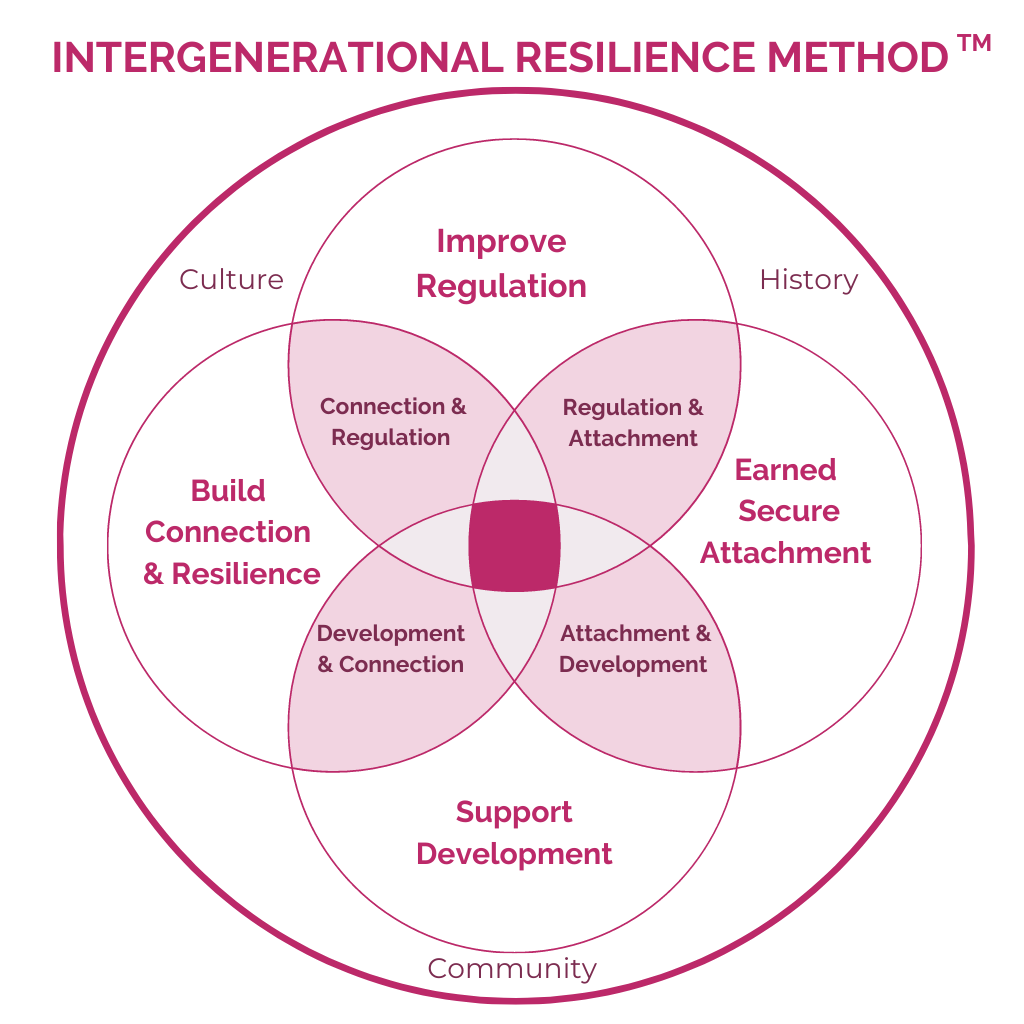An Unparalleled Approach to Healing Generational Wounds
Understanding intergenerational trauma is challenging; treating it effectively is even more so. That’s where the Intergenerational Resilience Method comes in. This distinctive framework serves as a comprehensive system, meticulously designed to confront and transform the impacts of intergenerational trauma across multiple generations.
What Is Intergenerational Trauma?
Intergenerational trauma is not merely a psychological buzzword; it's a pervasive and intricate issue that affects families through genetic changes, environmental stressors, attachment breakdowns, and detrimental coping mechanisms. If one generation grapples with these issues, the chances escalate that the next will too—unless proactive, evidence-based interventions are applied.


Four Pillars of Transformation
A Science-Backed Methodology
Our interventions are not arbitrary; they're grounded in the advanced understanding of Polyvagal Theory, relational neuroscience, developmental psychology, and family resilience strategies. This ensures that you, as a therapist or caregiver, are equipped with the most up-to-date, effective tools to bring about meaningful change.
Are You Ready to Become an Expert in Healing Generational Trauma?
The Intergenerational Resilience Method is not just a set of interventions; it’s a transformative movement. By mastering this Method, you position yourself as a Certified Intergenerational Trauma Specialist—an expert with the skills, community, and knowledge to lead a new wave of healing and resilience.
Join us in making a lasting impact that echoes through generations.
This page aims to captivate your audience’s attention by highlighting the urgency of treating intergenerational trauma and showcasing the scientific rigor behind your methods. It stays true to your brand pillars—especially your commitment to specialization and expertise, a compassionate community, and cutting-edge, neuroscience-based knowledge.
